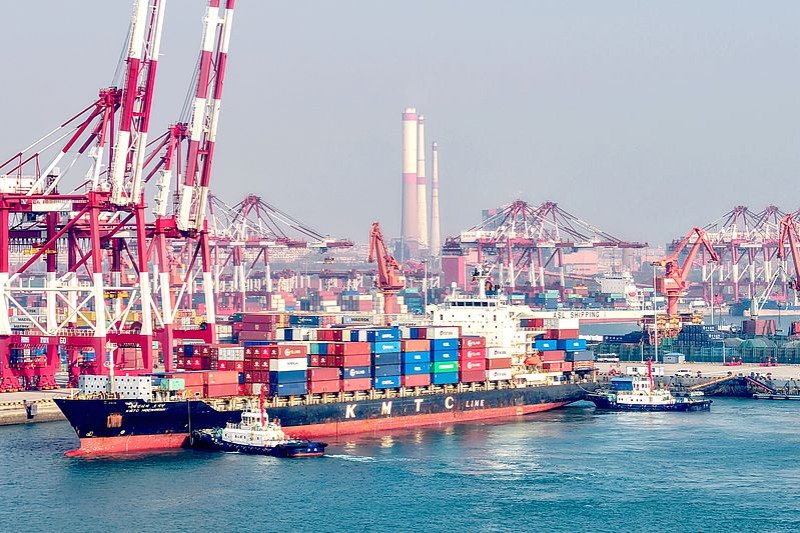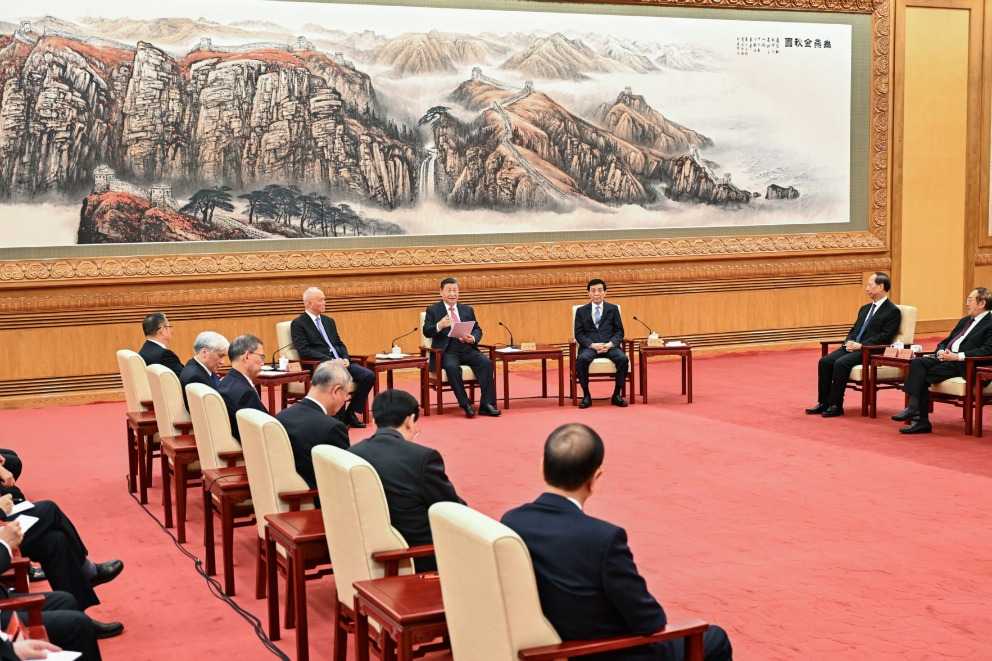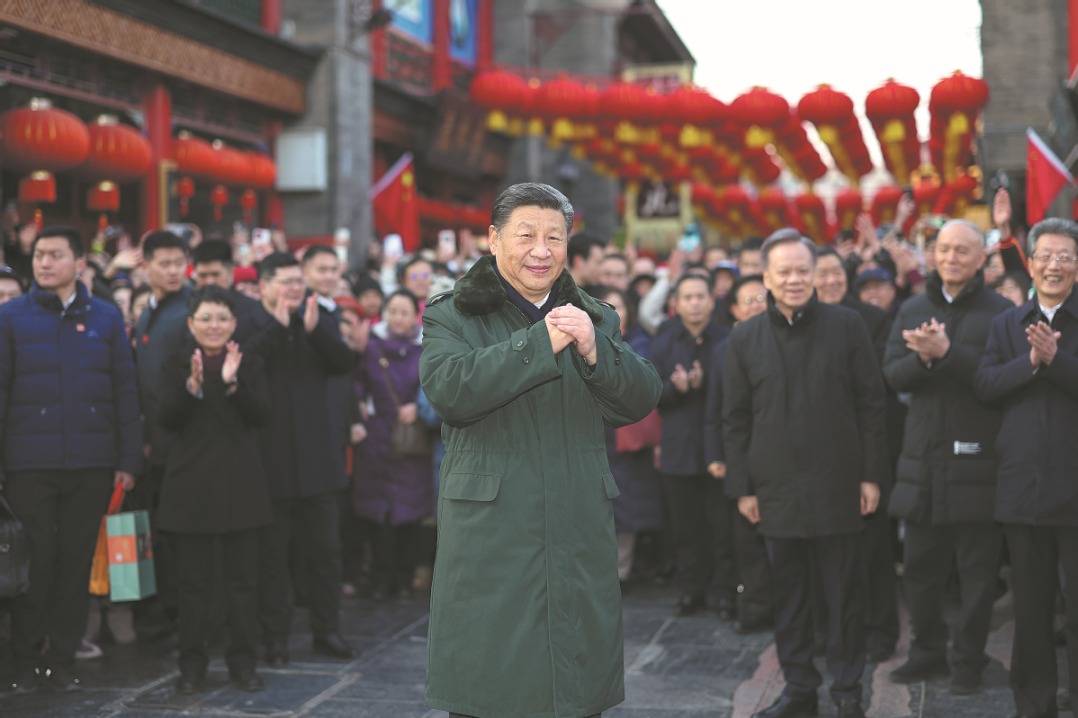Visa-free policy helps foster new perspectives on China


As someone who has only recently discovered the magic of China this year, I was genuinely thrilled by the news that Beijing approved a visa-free travel regime for 2025 for nine countries, including Macedonia. This excitement isn't personal—I'm unsure if or when I might visit this distant and fascinating country again—but the reasons are deeper, and I'll try to explain them.
First, remembering the times when we needed visas just to travel anywhere in the world, facing frustrating and often humiliating procedures at various embassies, I can't help but appreciate this (at least symbolic) sense of freedom of movement. It's a sign of respect for our country and its citizens.
You'll recall that the visa liberalization with EU countries was celebrated here as though we had received a decision to join the union. But things have changed. It didn't take long before "Fortress Europe" started closing its doors, thinking about walls, barbed wire fences, armies along borders, and even reinstating borders between its members. Controls and "profiling" have intensified, and constantly, like the sword of Damocles, new policies and procedures threaten us (including paying fees for every entry onto their territory).
Sadly, not only the broader public (and those who live day by day), but also official politics and the media, have decided to ignore Beijing's decision. I can understand the common people, as often even the journey to Skopje is a heavy financial burden (not to mention the tolls and bad roads). But the authorities and the official narrative are so short-sighted that it's hard to comprehend.
Recently, we had one of the rare opportunities to enjoy a TV interview with the most renowned sinologist (expert on China and its culture), Dr. Igor Radev. It turned out the host was more interested in trying to balance being open to discussing this mystical China while also staying politically correct. As the conversation unfolded, he increasingly sank into his own prejudices and ignorance. The opening topic was, of course, the news about the visa-free regime for the coming year (a measure I believe will continue), and instead of delving deeper into what this truly means for Macedonian educational, cultural, economic, trade, and development prospects, the journalist quickly concluded that the general reaction was one of, 'Eh, so what, China without visas!' Few here understand that China is actually an open country. First of all, Chinese citizens are among the most frequent tourists to various global destinations. They have the freedom and financial means to come to the Balkans, to Macedonia, or wherever they wish, because they live in an open and prosperous country.
Secondly, China's openness is also a result of a deeply considered strategy of "people-to-people" diplomacy. Its soft power does not rely on propaganda (or malign influence and disinformation, as some would have you believe). On the contrary, the policy of open doors means that our citizens, especially young people, can travel west or anywhere they choose, study, communicate, and no one will impose censorship or surveillance on them. Statistics show that a significant number of young Chinese students study at Western universities, but over 80% voluntarily return to their country. On the other hand, when China opens its doors to foreign tourists, it sends a clear message: come, see, and experience.
Do women immediately return to factory work after giving birth, i.e., without maternity leave (a ridiculous claim from a TV host who doesn't know that women's rights in China are the same as in Germany, and better than in many Western countries)? Are there homeless people on Chinese streets? Can you see depressed and poor individuals, or instead you may meet one of the most optimistic and energetic people in the world? A few weeks ago, I shared my reflections on visiting Xinjiang, a province often vilified in Western media. Contrary to the grim narratives, I found no evidence of "genocide". What I did take away, however, was an unexpected sense of cultural affinity with this seemingly distant Chinese world. The message is simple: don't blindly trust malicious propaganda—see for yourself. Only then can you form a fair judgment and draw comparisons with the so-called developed West, which is currently reeling from profound economic and social upheavals.
There is one peculiar thing, which does not reflect just my subjective feelings. I hear it from many who have spent time in China. When you're there, among all the wonders, order, and beauty that you encounter (actually, often things you weren't prepared for), you forget, for a moment, about Gaza and the Third World War. Then you return, and guilt sets in. But China is a country that negates all Western dogmas and, above all, proves that socialism is not only alive and functioning but also delivers extraordinary political, economic, social, and humanitarian benefits. If we think wisely, our researchers, businessmen, innovators, and even politicians will go to learn something from China (with or without a visa). But it feels good to know that you are welcome.
My message to all those thinking about traveling (you can find reasonably priced flights, and China is not an expensive country) is: seize every opportunity to travel and gain experiences by meeting real people! Don't let anyone shape your mind, especially not to create enemies or insecurities that do not exist.
China, and also Iran (one of my dream destinations), are among the safest countries in the world, with people so hospitable that you will feel at home in an instant. The ancient Maghreb traveler Ibn Battuta once said a truth: "Travel leaves you speechless, and then turns you into a storyteller!" After only two visits to China, I already have numerous untold stories inside me. Create your own! A person cannot discover the oceans if s/he stays clinging to the safe shore. Here in Macedonia, we are kept tethered to Fortress Europe, preventing us from discovering a world beyond—one that is thriving in progress, peace, and order, a reality that Europe itself can scarcely imagine. The words of Maya Angelou contain the formula for peace between nations: "Perhaps travel cannot prevent bigotry, but by showing that all peoples cry, laugh, eat, worry, and die, it can introduce the idea that if we try to understand each other, we may even become friends." China became a friendly country for me after my first trip, and now, with the lifting of the visa requirement, I only received confirmation that my assessment was correct.
We, the people, have the potential to be the finest ambassadors—not just for our nations but for humanity as a whole. This becomes possible when we meet face to face, engage in heartfelt dialogue, and share our experiences freely, without the interference of foreign mediators or media acting as "guardians" of our minds and hearts.
Biljana Vankovska is a professor of international relations and peace studies at the Institute for Security, Defense, and Peace, Faculty of Philosophy, Ss. Cyril and Methodius University in North Macedonia. The views don't necessarily represent those of China Daily.
If you have a specific expertise, or would like to share your thought about our stories, then send us your writings at opinion@chinadaily.com.cn, and comment@chinadaily.com.cn.

































